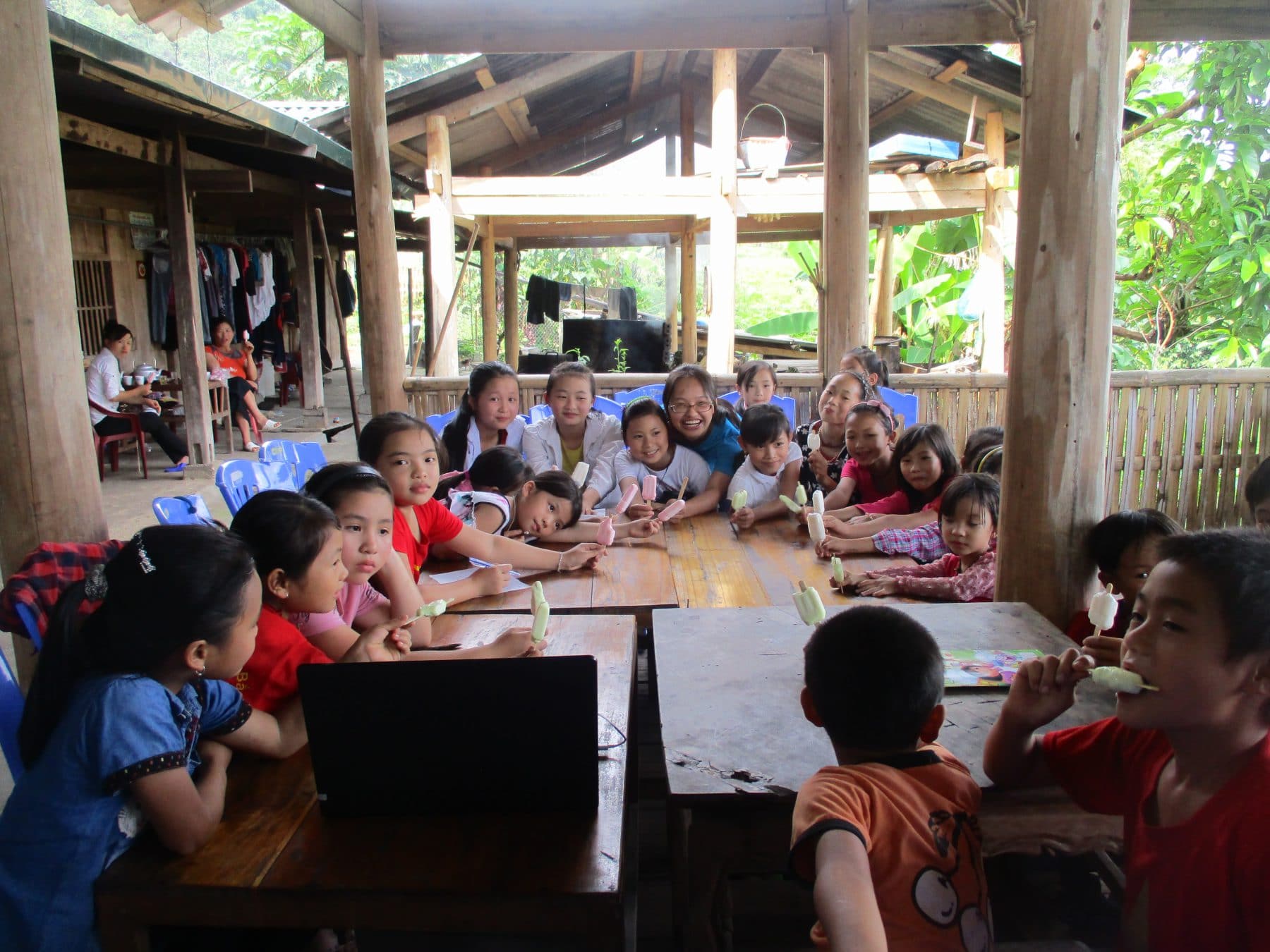A voluntary teaching English project in Hoang Su Phi of Ha Giang has just completed successfully with the great contribution of 3 volunteers coming from Hanoi.
Hoang Su Phi of Ha Giang is becoming a popular name at the top destination in Vietnam thanks to majestic and authentic natural beauty and diversity of minority groups. The number of tourists, especially foreign tourist who visit Hoang Su Phi has been increasing after years and years, raising the need for communication in English for people who work in tourism sectors. If there is no activity to improve the situation, English can be a big obstacle for tourism development here. As part of the promotion of community-based tourism in Hoang Su Phi, an English class for homestay owners has opened with an aim that is to improve the ability to communicate in English with foreign guests. The program is organized by CRED and Vietnam Responsible Tourism with the great contribution of 3 volunteers coming from Hanoi.
The aim of the program is teaching English to homestay owners and people in the project area of tourism development. The 3 volunteers are divided into 3 homestays at 3 different villages which are Ho Thau, Ban Luoc and Nam Son. During 6 weeks of the program, the very short time, the volunteers always made use of time to deliver the best lessons. These lessons are designed with a wide variety. In reality, homestay owners encounter many difficulties in welcoming and serving guests. Our voluntary teachers based on these specific situations to design teaching plans and to build up basic communication for these topics. By that way, lessons become useful and easier to remember.
At the end of the project, homestay owners learned a lot of basic and important words used in welcoming and serving process. Their pronunciation is improved significantly. Now, they are more confident to communicate with foreigners.
Besides teaching English for homestay owners, volunteer teachers also organized classes for children in these three villages. The children joined classes with excitement and eagerness to learn. The lessons focus on communication, not requiring high-level of grammatical or spelling of vocabulary. Each lesson is divided into two. The first half of the session was the time for reviewing past knowledge and the other half was to learn new knowledge. Volunteers try to use English during class to increase their reflexes while learning English. They are getting more familiar with English now.

